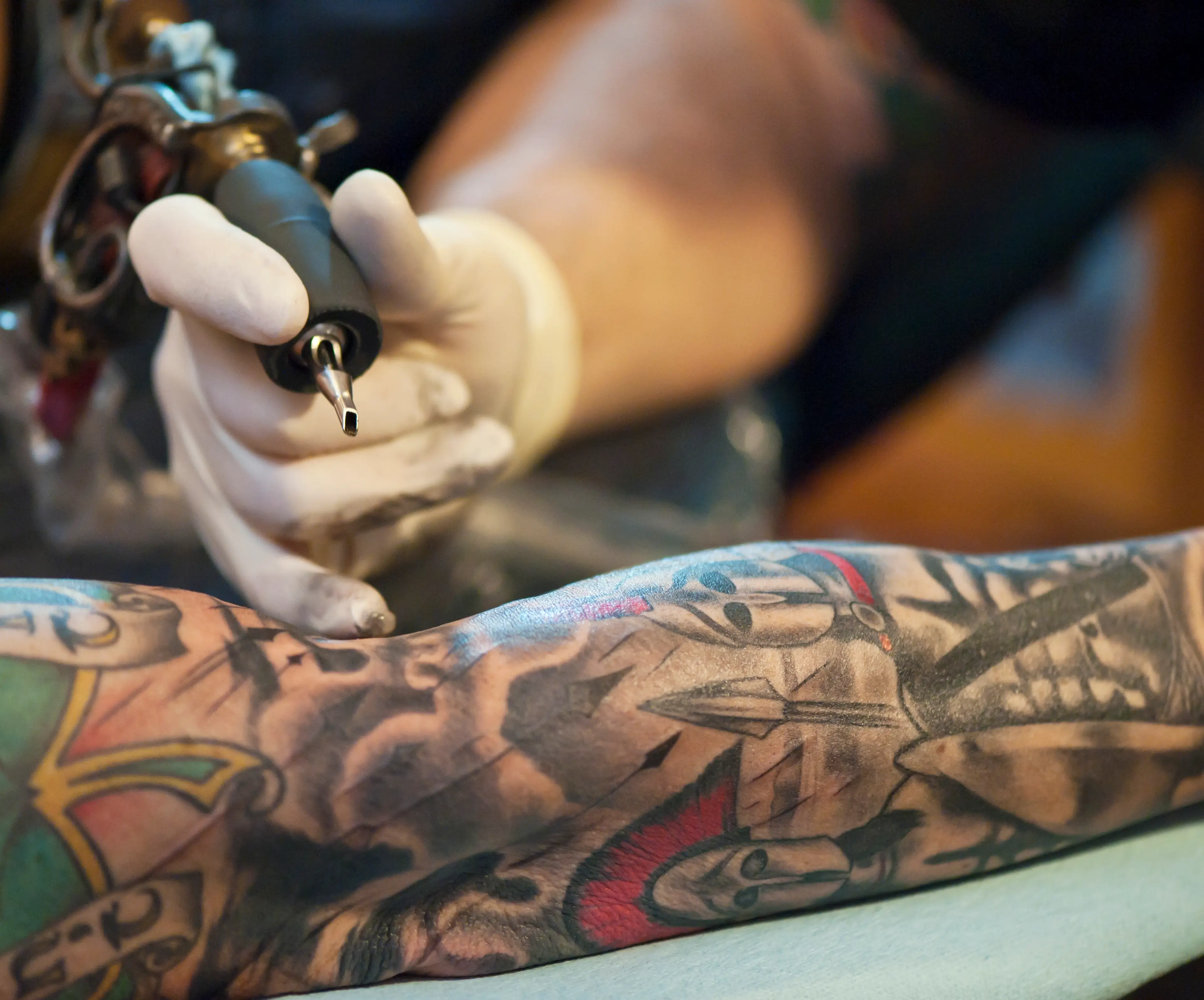Getting tattoos is a popular creative outlet for many, but a new study has revealed there may be an unexpected link to cancer.
Tattoos have been popular for longer than you might think, and while perception of the art often changes, the act of getting meaningful words and images permanently inscribed on the body won’t be going anywhere soon.
But with that said, there could be dangers related to cancer that were not previously fully understood.
Earlier this year in March, researchers from the Department of Public Health and the Department of Clinical Research at the University of Southern Denmark conducted a study involving twins hoping to pinpoint any changes in cancer risk from those that got themselves inked up compared to those that didn’t.
The study is based on data from the Danish Twin Tattoo Cohort, where researchers have information from more than 5,900 Danish twins.
The twin with tattoos may have a slightly higher risk of developing skin cancer (Getty Stock Image) The name of the paper was ‘Tattoo ink exposure looks at the risks of lymphoma and skin cancers - a Danish study of twins'.
According to the authors, the goal was to see if tattoo ink could trigger inflammation in the lymph nodes, therefore, potentially leading to abnormal cell growth and an increased cancer risk.
With cancer diagnoses being retrieved from the Danish Cancer Registry and a survey about tattoo ink exposure from the 2021 Danish Twin Tattoo survey, the research concluded that the twins that had tattoos were at a 1.62 times greater risk of developing skin cancer than their tattoo-less siblings.
Henrik Frederiksen, consultant in hematology at Odense University Hospital and clinical professor at SDU, explained the conclusions from the study.
He said: “We can see that ink particles accumulate in the lymph nodes, and we suspect that the body perceives them as foreign substances.
“This may mean that the immune system is constantly trying to respond to the ink, and we do not yet know whether this persistent strain could weaken the function of the lymph nodes or have other health consequences."
The authors have insisted more research is needed around this topic (Getty Stock Image) The researchers are particularly concerned that tattoo ink may trigger chronic inflammation in the lymph nodes and that over time this could lead to abnormal cell growth and an increased risk of cancer.
In addition to this, the size of the tattoo may also be playing a role in regards to the chance of developing cancer.
However, those responsible for the study have caveated their conclusions with the comment it is still not known if certain ink pigments are a higher risk, and whether 'certain types of lymphoma are more linked to tattoos than others' and more research needs to be done in the future.
How worried should I be about cancer when getting a tattoo?
Ultimately, researcher Signe Clemmensen who co-authored the study said it shouldn't put off anyone thinking of getting ink.
She told New Scientist: "What I would say to someone with a tattoo or perhaps considering getting a tattoo, is that it’s not something they should be overly concerned about yet."
Meanwhile, Rachel Orritt from Cancer Research UK said: "There isn’t enough evidence to say that tattoos increase people’s cancer risk; more research is needed."

 Gerrard Kaonga
Gerrard Kaonga
